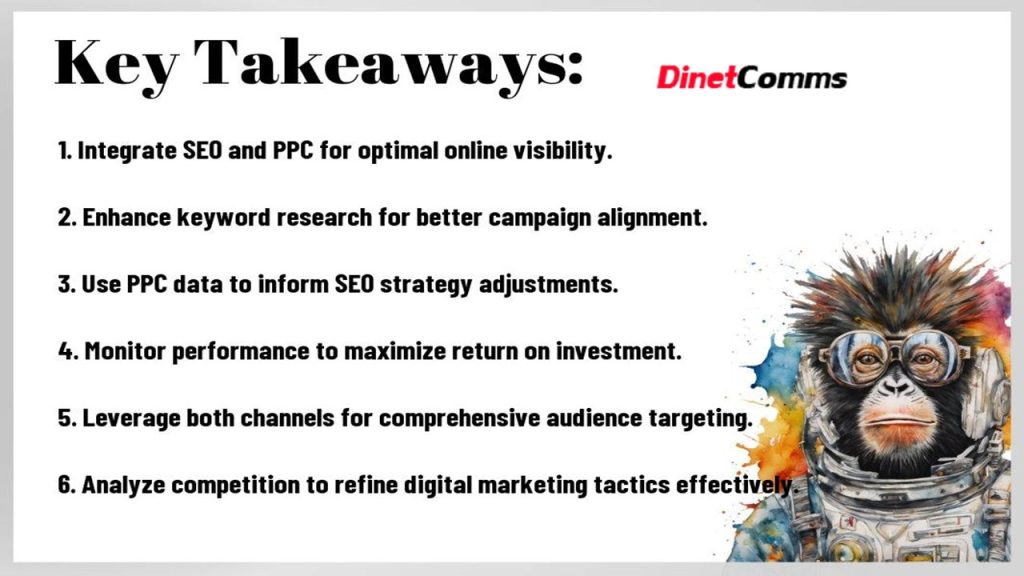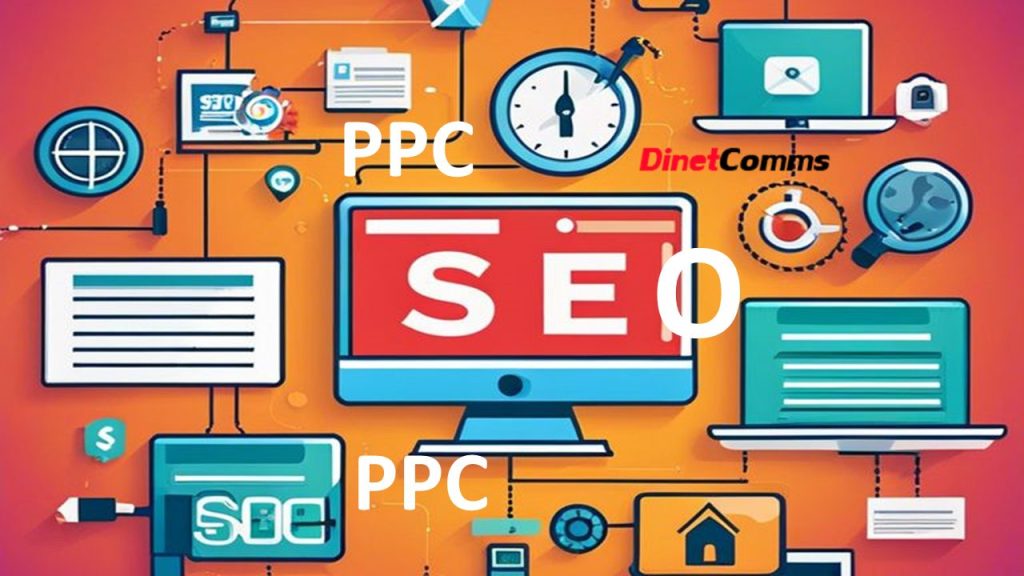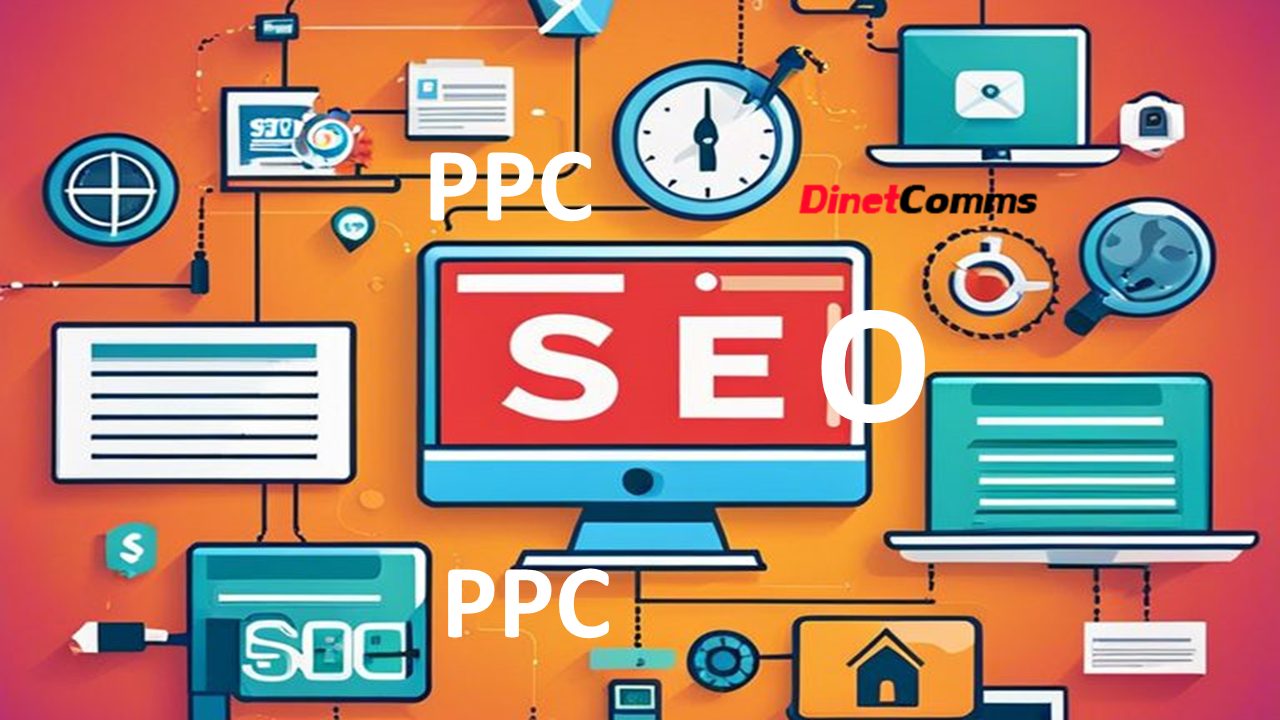SEO and SEA Strategy: The Ultimate Guide to Dominating Digital Marketing
Need to understand the powerful synergy between SEO and SEA Strategy in today’s digital marketing landscape? By leveraging both strategies, you can enhance your online visibility, drive more traffic, and maximize your conversion rates. This guide will equip you with actionable insights on how to effectively combine these two strategies to achieve optimal results and stay ahead of the competition. Whether you’re a seasoned marketer or just starting, mastering the interplay of SEO and SEA can elevate your digital marketing game to new heights.
Key Takeaways:
- SEO and SEA Integration: Combining Search Engine Optimization (SEO) and Search Engine Advertising strategies enhances visibility and can lead to better overall performance in digital marketing.
- Data Utilization: Leveraging data from SEA campaigns can inform and refine SEO strategies, allowing for more targeted content creation and keyword selection.
- Brand Visibility: A dual approach can significantly improve brand awareness, as users are more likely to trust a brand that appears in both organic and paid search results.
- Cost-Efficiency: Coordinating SEO and SEA efforts can lead to increased return on investment (ROI) by maximizing the impact of both channels.
- Retargeting Opportunities: SEA can be used to retarget visitors who interact with SEO content, thereby creating opportunities for conversions from both channels.
- Keyword Research: Insights gained from SEA campaigns can help refine SEO keyword targeting, ensuring that marketers focus on high-converting terms.
- Competitive Advantage: Optimizing both channels positions businesses to outperform competitors by capturing more market share through increased online presence.
Understanding SEO and SEA
For anyone looking to navigate the complexities of digital marketing, understanding the fundamentals of SEO and SEA is crucial. These two strategies not only coexist but can also significantly enhance your overall online visibility when used together. By gaining insights into both, you can optimize your marketing efforts and drive more traffic to your website.
Definition of SEO
For your digital presence, Search Engine Optimization (SEO) refers to the process of improving your website’s visibility on search engines. This is achieved through a combination of keyword research, content creation, technical enhancements, and building backlinks, ultimately aiming to increase organic traffic.
Definition of SEA
Search Engine Advertising (SEA) is a model where you pay a fee each time your ad is clicked. This approach allows you to buy visits to your site rather than earning them organically. With platforms like Google Ads, you can target specific audiences based on various parameters to maximize your return on investment.
By using SEA, you can quickly generate traffic and leads, particularly for new businesses or promotional campaigns. It’s a flexible method, allowing you to adjust bids, keywords, and ad content on the fly based on performance data. This immediacy can be the difference between success and missing out on potential customers.
Key Differences and Similarities
To effectively leverage both strategies, you need to recognize their key differences and similarities. While SEO focuses on earning organic traffic over time, SEA offers immediate visibility through paid placements. Both aim to drive traffic to your site, but they differ in their approach, costs, and the time it takes to see results.
A critical aspect to remember is that while SEO can yield long-term benefits, it often requires a more extensive investment of time and resources compared to the quicker, but initially more expensive, nature of SEA. Combining both tactics allows you to cultivate a comprehensive digital marketing strategy that balances immediate results with sustainable growth.

Benefits of Combining SEO and SEA
You may wonder how combining SEO and SEA can amplify your digital marketing efforts. By integrating these two powerful strategies, you can maximize your online presence and boost your overall performance. Below, we examine specific benefits that come from this synergy.
Enhanced Visibility
One significant advantage of combining SEO and SEA is the enhanced visibility of your brand across search engine results pages (SERPs). When your website ranks organically and runs SEA ads, potential customers are more likely to see your offerings multiple times, thereby increasing brand awareness.
Increased Traffic
For businesses leveraging both SEO and SEA, the potential to increase website traffic is substantial. Users are drawn to the varied touchpoints—from organic results to paid ads—creating a more comprehensive engagement with your brand.
Increased visibility through both channels not only amplifies your chances of attracting visitors but also allows you to capture different segments of your target audience. With your SEA ads positioned at the top of the SERPs and your optimized content ranking below, you dominate the search landscape—not just increasing visits but drawing in more qualified leads.
Better Insights and Data Analysis
To fully understand your audience and refine your marketing strategies, combining SEO and SEA provides better insights and data analysis. This fusion allows you to gather comprehensive data, giving you a better picture of customer behavior and preferences.
The detailed analytics derived from SEA campaigns can inform your SEO efforts, helping you identify high-performing keywords, user demographics, and overall campaign effectiveness. By utilizing data from both strategies, you can make more informed decisions, optimize your campaigns, and effectively allocate your marketing budget for maximum impact.
Developing a Synergistic Strategy
To optimize your digital marketing efforts, it’s crucial to develop a synergistic strategy that integrates both SEO and SEA. By doing so, you can enhance your visibility and drive more targeted traffic to your website. Here, we explore key components, ensuring that your efforts in both areas amplify each other rather than work in isolation.
Aligning Goals
For your marketing strategies to be effective, you must first establish clear and cohesive goals. Aligning your SEO and SEA goals not only streamlines your efforts but also ensures that you are targeting the same audience with a unified message. This alignment helps you make informed decisions and enhance your overall marketing performance.
Keyword Research and Targeting
Any successful digital marketing strategy begins with effective keyword research. By identifying high-value keywords that resonate with your target audience, you lay the groundwork for both SEO and SEA campaigns. This dual focus on keyword targeting ensures you dominate search results across organic and paid listings.
Aligning your SEO and SEA keyword strategies allows you to understand which terms drive the most traffic and conversions. Implementing a robust keyword mapping process will help you leverage SEA insights to refine your SEO efforts, strengthening the impact of both channels. Bear in mind, that regularly updating your keyword strategy based on performance data is vital to achieve continuous growth.
Budget Allocation and Resource Management
For a successful strategy, effective budget allocation and resource management are vital. Be deliberate in how you distribute your marketing budget among your SEO and SEA campaigns, ensuring that both avenues receive adequate funding based on performance metrics and business goals.
Resource management is equally critical, as it ensures that you have the right tools, talent, and time dedicated to both SEO and SEA efforts. Regularly analyze your budget and performance data to reallocate resources as needed. This flexibility enables you to invest more in strategies that yield the highest return on investment, creating a balanced and profitable approach to your digital marketing initiatives.

Measuring Success and Optimization
Now, understanding how to measure your success in SEO and SEA campaigns is crucial for continuous growth and optimization. By regularly evaluating your performance, you can identify areas needing improvement and capitalize on your strengths.
Key Performance Indicators (KPIs)
Success in digital marketing hinges on clearly defined Key Performance Indicators (KPIs). These metrics, such as click-through rates, conversion rates, and average cost per acquisition, provide invaluable insight into your campaign performance. By regularly reviewing these indicators, you can make informed adjustments that will drive your marketing strategy forward.
Tools and Software for Tracking
Tools are crucial for accurately tracking your SEO and SEA efforts. With powerful analytics platforms like Google Analytics and SEMrush, you can seamlessly monitor your website traffic, keyword rankings, and ad performance. These insights help you understand user behavior and refine your tactics based on what’s working.
Another crucial aspect of success is leveraging advanced tools and software to maximize your tracking capabilities. For instance, using platforms like Google Ads and Ahrefs can yield data-rich reports that reveal both the short and long-term successes of your campaigns. By integrating these tools into your strategy, you can analyze performance trends and make data-driven decisions that significantly enhance your overall outcomes.
Continuous Improvement Techniques
On your digital marketing journey, continuous improvement techniques are integral to staying ahead of the competition. Emphasize practices such as A/B testing, audience segmentation, and regular audits to fine-tune your campaigns. These methods allow you to iteratively enhance your strategies and performance.
It’s vital to implement continuous improvement techniques that create a culture of experimentation within your organization. Regularly test different ad copies, landing pages, and audience targeting strategies to discover what resonates with your target market. By fostering a mindset of adaptation and growth, you can ensure that your digital marketing efforts remain effective and yield enhanced returns over time.
Conclusion
Considering all the points discussed, understanding the synergy between SEO and SEA is crucial for your digital marketing success. By leveraging both strategies, you can enhance your online visibility, drive targeted traffic, and ultimately boost conversions. Embrace the unique strengths each method offers to create a comprehensive approach that not only increases your reach but also maximizes your return on investment. With informed decisions and careful planning, you are well on your way to dominating the digital landscape.
FAQ
Q: What is the main difference between SEO and SEA?
A: SEO (Search Engine Optimization) is the practice of optimizing your website to improve organic (non-paid) search engine rankings, focusing on factors like keyword research, content quality, link building, and site structure. On the other hand, SEA (Search Engine Advertising) is a form of online advertising where advertisers pay a fee each time their ad is clicked. SEA can provide immediate visibility while SEO usually requires more time to see results.
Q: How can SEO and SEA work together effectively?
A: SEO and SEA can complement each other by sharing data and insights. For example, keyword research for SEA can inform SEO strategies, helping to identify high-performing keywords. Additionally, SEA can help test keywords and landing pages that can then be optimized for organic search. By integrating both strategies, businesses can amplify their visibility and maximize their return on investment.
Q: What are the benefits of combining SEO and SEA strategies?
A: Combining SEO and SEA strategies can result in higher search visibility, better brand recognition, and improved click-through rates. When both strategies are present, it can lead to increased ad placements, as well as greater trust from users who see your site listed in both organic and paid positions. This synergy can lead to better overall engagement and conversions.
Q: How does keyword research differ between SEO and SEA?
A: While both SEO and SEA utilize keyword research, the approach can vary. In SEO, the emphasis is often on finding long-tail keywords that can drive consistent organic traffic over time. In SEA, keyword research is more focused on immediate conversions and typically includes a cost-per-click analysis to assess the value of specific terms. However, successful marketers will use insights from both areas to refine their keyword strategies.
Q: Can SEA help boost SEO performance?
A: Yes, SEA can indirectly boost SEO performance. By driving immediate traffic and engagement, SEA ads can increase brand awareness, potentially leading to more branded searches. Additionally, analyzing metrics from SEA campaigns, such as conversion rates and user behavior, can inform SEO strategies and content development to target the same audience more effectively.
Q: What metrics should be monitored to assess the synergy between SEO and SEA?
A: Key metrics to monitor include click-through rates (CTRs), conversion rates, overall traffic trends, and search rankings. Analyzing organic traffic performance before and after launching PPC campaigns can indicate how well the two strategies complement each other. Additionally, one should also track cost-per-acquisition (CPA) and return on ad spend (ROAS) for SEA campaigns to gauge effectiveness against SEO metrics.
Q: What are the common mistakes businesses make when integrating SEO and SEA?
A: Common mistakes include failing to align messaging and targeting between both strategies, not utilizing data from one strategy to inform the other, and not tracking performance closely enough to see how they impact each other. Additionally, businesses may overlook the importance of optimizing their landing pages for both SEO and SEA traffic, which can lead to lower conversion rates.
Ready to dominate digital marketing? Unlock the power of SEO and SEA synergy with our ultimate guide. Start leveraging these strategies today for maximum impact!”
Published by Adebola Adeola, CEO, Dinet Comms

